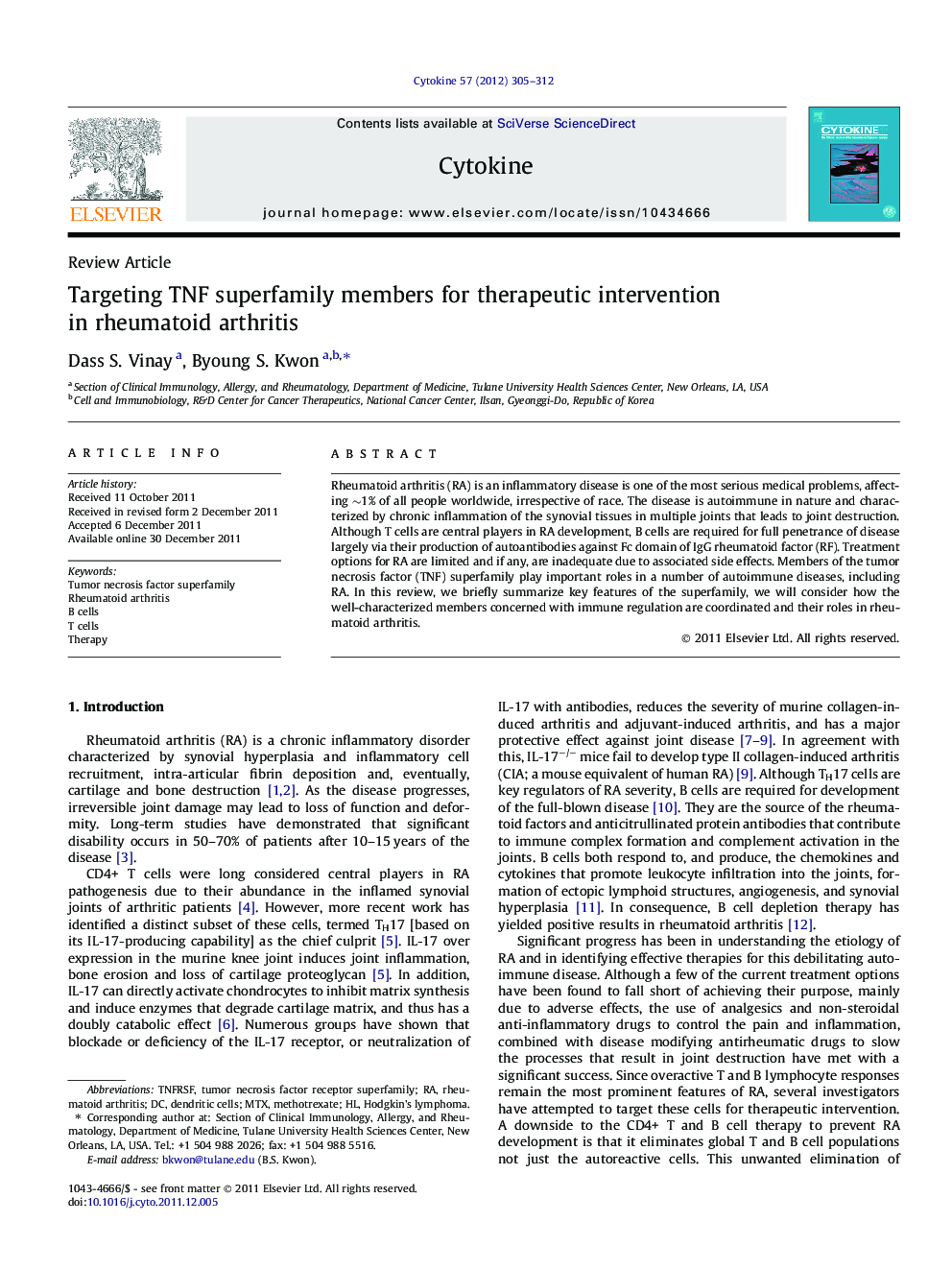| Article ID | Journal | Published Year | Pages | File Type |
|---|---|---|---|---|
| 2794389 | Cytokine | 2012 | 8 Pages |
Rheumatoid arthritis (RA) is an inflammatory disease is one of the most serious medical problems, affecting ∼1% of all people worldwide, irrespective of race. The disease is autoimmune in nature and characterized by chronic inflammation of the synovial tissues in multiple joints that leads to joint destruction. Although T cells are central players in RA development, B cells are required for full penetrance of disease largely via their production of autoantibodies against Fc domain of IgG rheumatoid factor (RF). Treatment options for RA are limited and if any, are inadequate due to associated side effects. Members of the tumor necrosis factor (TNF) superfamily play important roles in a number of autoimmune diseases, including RA. In this review, we briefly summarize key features of the superfamily, we will consider how the well-characterized members concerned with immune regulation are coordinated and their roles in rheumatoid arthritis.
